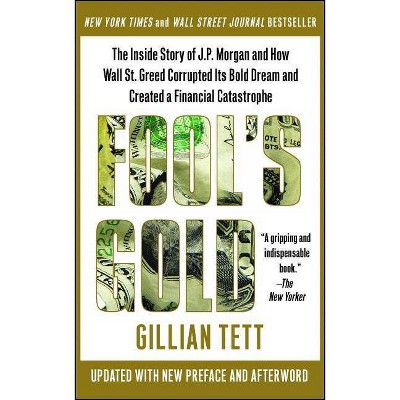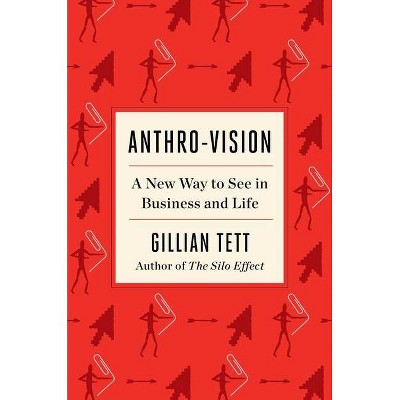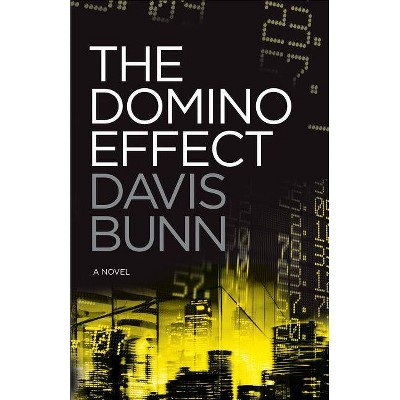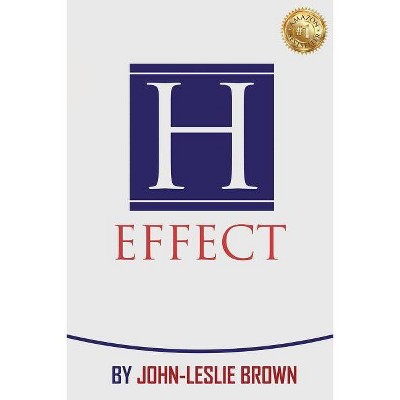The Silo Effect - by Gillian Tett (Paperback)
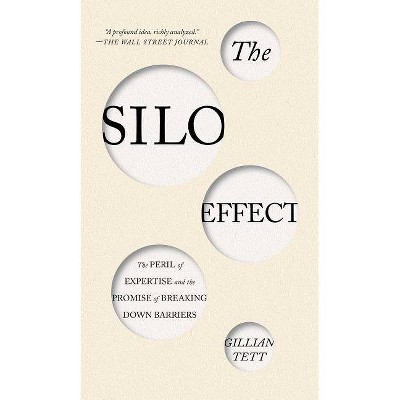
Similar Products
Products of same category from the store
AllProduct info
<p/><br></br><p><b> About the Book </b></p></br></br>Gillian Tett lays bare "the silo effect" and explains how fragmentation in terms of how people organize themselves, interact with each other, and imagine the world can take hold of an organization and lead to institutional blindness. Spanning Bloomberg's City Hall in New York, the Bank of England in London, Cleveland Clinic hospital in Ohio, Facebook in San Francisco, Sony in Tokyo, and the Chicago Police Department, this book illustrates how stupidly people can behave when they are mastered by silos. It also shows, however, how institutions and individuals can master their silos. It also shows, however, how institutions and individuals can master their silos instead. These are stories of failure and success.<p/><br></br><p><b> Book Synopsis </b></p></br></br><b>Award-winning journalist Gillian Tett "applies her anthropologist's lens to the problem of why so many organizations still suffer from a failure to communicate. It's a profound idea, richly analyzed" (<i>The Wall Street Journal</i>), about how our tendency to create functional departments--silos--hinders our work.</b> <p/><i>The Silo Effect</i> asks a basic question: why do humans working in modern institutions collectively act in ways that sometimes seem stupid? Why do normally clever people fail to see risks and opportunities that later seem blindingly obvious? Why, as Daniel Kahnemann, the psychologist put it, are we sometimes so "blind to our own blindness"? <p/>Gillian Tett, "a first-rate journalist and a good storyteller" (<i>The New York Times</i>), answers these questions by plumbing her background as an anthropologist and her experience reporting on the financial crisis in 2008. In <i>The Silo Effect</i>, she shares eight different tales of the silo syndrome, spanning Bloomberg's City Hall in New York, the Bank of England in London, Cleveland Clinic hospital in Ohio, UBS bank in Switzerland, Facebook in San Francisco, Sony in Tokyo, the BlueMountain hedge fund, and the Chicago police. Some of these narratives illustrate how foolishly people can behave when they are mastered by silos. Others, however, show how institutions and individuals can master their silos instead. <p/>"Highly intelligent, enjoyable, and enlivened by a string of vivid case studies....<i>The Silo Effect</i> is also genuinely important, because Tett's prescription for curing the pathological silo-isation of business and government is refreshingly unorthodox and, in my view, convincing" (<i>Financial Times</i>). This is "an enjoyable call to action for better integration within organizations" (<i>Publishers Weekly</i>).<p/><br></br><p><b> Review Quotes </b></p></br></br><br>"A complex topic and lively writing make this an enjoyable call to action for better integration within organizations."-- "Publishers Weekly"<br><br>'Silo' has become a cliché among management consultants--and executives trying to hang onto their jobs by speaking the language of the <i>au courant</i>--but Tett gives the metaphor life in her engaging, case-study-filled new book."-- "New York Post"<br><br>'Silo'has become a cliché among management consultants--and executives trying to hang onto their jobs by speaking the language of the <i>au courant</i>--but Tett gives the metaphor life in her engaging, case-study-filled new book."<b> --<i>New York Post</i></b><br><br>"Highly intelligent, enjoyable and enlivened by a string of vivid case studies. It is also genuinely important, because her prescription for curing the pathological silo-isation of business and government is refreshingly unorthodox and, in my view, convincing."-- "Financial Times"<br><br>In "The Silo Effect" she applies her anthropologist's lens to the problem of why so many organizations still suffer from a failure to communicate. It's a profound idea, richly analyzed.-- "The Wall Street Journal"<br><br>In"The Silo Effect" she applies her anthropologist's lens to the problem of why so many organizations still suffer from a failure to communicate. It's a profound idea, richly analyzed.<b>-- <i>The Wall Street Journal</i></b><br><br><b>Praise for THE SILO EFFECT</b> <p/>"Highly intelligent, enjoyable and enlivened by a string of vivid case studies. It is also genuinely important, because her prescription for curing the pathological silo-isation of business and government isr efreshingly unorthodox and, in my view, convincing."<b> --<i>Financial Times</i></b><br><br>"<i>The Silo Effect</i> comes across in print much as Tett comes across in person--sharp, insightful, and concise. And the book, which is informed as much by her training as an academic anthropologist as by her experience covering the global financial crisis, is an excellent attempt to help both organizations and individuals figure out how to harness the benefits of specialization without creating tunnel vision."<b><i>--Strategy+Business</i></b><br><br>"The Silo Effect comes across in print much as Tett comesacross in person--sharp, insightful, and concise. And the book...is an excellentattempt to help both organizations and individuals figure out how to harnessthe benefits of specialization without creating tunnelvision."<b><i>--Strategy+Business</i></b><br><p/><br></br><p><b> About the Author </b></p></br></br>Gillian Tett chairs the editorial board, US, for the <i>Financial Times</i> and writes columns for the world's leading newspaper covering finance, business, and the political economy. She has been named British Journalist of the Year, Columnist of the Year, and Business Journalist of the Year in the UK and won two Society for Advancing Business Editing and Writing awards in the US. She speaks regularly at conferences around the world on finance and global markets and has a PhD in social anthropology from Cambridge University. Tett is the author of <i>Saving the Sun: How Wall Street Mavericks Shook Up Japan's Financial World and Made Billions</i>, <i>Fool's Gold: The Inside Story of J.P. Morgan and How Wall St. Greed Corrupted Its Bold Dream and Created a Financial Catastrophe</i>, and <i>The Silo Effect: The Peril of Expertise and the Promise of Breaking Down Barriers</i>.
Price History
Price Archive shows prices from various stores, lets you see history and find the cheapest. There is no actual sale on the website. For all support, inquiry and suggestion messagescommunication@pricearchive.us
